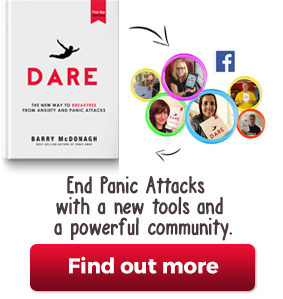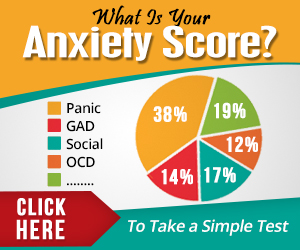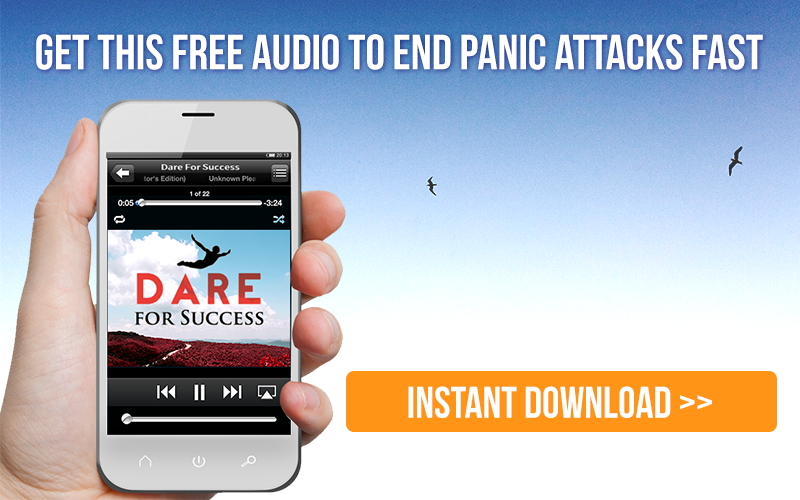
I got a call from a woman the other day who wanted to talk about her panic attacks and general anxiety. She is in her early thirties and lives with her husband and kids in a small town. She told me how anxiety and panic attacks were destroying her quality of life and everyday was turning into a pitch battle. She used to travel all around the world for work, but today she finds it hard to step out the front door for fear of having a panic attack. She has two small kids and they have needs to be
Read more
Are anxiety and panic attacks making it difficult for you to enjoy your daily life? If you’re like most people who suffer from high levels of anxiety and experience panic attacks on a regular basis, you may not be aware of what your “triggers” are. I talk more about what causes panic attacks and anxiety in my book, Panic Away. In most cases, the trigger for panic attacks and other forms of general anxiety are related to physical, mental and emotional exhaustion. Basically, you are more vulnerable to having a panic attack or experiencing an uncomfortable level of anxiety when
Read more
When looking for help with panic attacks there are three basic points you should be made immediately aware of. The first point is that panic attacks have nothing to do with mental illness. Anxiety is a behavioral problem that can easily be corrected with the right guidance and information. That’s a really important point because many people fear that their anxiety problem is a sign of a mental illness. It is not. The second point is that panic attacks have nothing to do with a lack of courage, in fact it is quite the opposite. People with panic attacks actually
Read more
Agoraphobia is linked to the experience of panic attacks. This is the fear of open spaces or of being in crowded, public places like shopping markets. It’s associated with leaving a safe zone, such as the home. Because of feeling vulnerable, people who experience this fear often suffer from panic attacks in these “open” situations. It’s true to say that many people who have regular panic attacks experience different degrees of agoraphobia. Some have a lingering background anxiety about being away from home should they experience a panic attack. Others are so immobilized by this fear that they find it
Read more
Even when you’ve made significant changes to your lifestyle and have accepted the fact that you experience panic and anxiety attacks, a panic attack can happen at any time and throw you for a loop. Many people that experience panic attacks on a regular basis find it difficult to undertake new activities, maintain a healthy social life, and participate in activities that will improve their lifestyle because they are afraid of having another panic attack and being unable to cope with its effects. The good news is, there are several ways to re-balance or “ground” yourself after a panic attack
Read more
Many people who have generalized anxiety disorder, and those that experience high levels of anxiety or panic attacks on a regular basis, struggle with sustaining a productive and balanced lifestyle. Simple activities such as driving a car or going shopping can create very strong feelings of anxiety, and may even lead to a panic attack. A fear of driving or driving phobia is a common side effect of anxiety disorders for many people, but there are some ways to overcome it so that day-to-day living doesn’t become so overwhelming. Driving phobia is defined as an intense fear of driving a
Read more
Do you wake up in a highly anxious state? Is it hard for you to focus and get control over your thoughts after a meal? If the answer is yes, one of the critical links related to your anxiety could be traced to your diet and your blood sugar levels throughout the day. If you have a history of diabetes or other health conditions that cause low blood sugar, you may be more vulnerable to high anxiety, stress and even a panic attack at certain times of the day. Many people who are suffering from hypoglycemia experience anxiety on a
Read more
For many people who deal with anxiety and panic attacks on a regular basis, nighttime can be a particularly difficult time of day because they are unable to fall asleep naturally. Not getting enough sleep can take its toll on your health and well-being, and can even increase the risk of an anxiety or panic attack in the near future. People stay awake at night for a number of reasons. They may be fearful or worried about an upcoming event, or they might simply be worried that they can’t sleep and won’t be able to perform at their best the
Read more
Click play to hear Barry explain this anxiety sensation. Here’s a typical scenario of getting anxious about your heart: “While sitting at my desk, I was feeling edgy, and I could feel my pulse rate increase. I kept working, and then I felt pins and needles going up my left arm. I immediately thought to myself, “I’m having a heart attack.” Literally seconds later, my heart was racing. I then looked around to see if there was anyone at the office. I was by myself . . . I really thought I was having a heart attack or stroke. Knowing
Read more
Click play to hear Barry explain this anxiety sensation. When someone experiences high anxiety or panic, it’s very common to feel light-headed or dizzy. This sensation is alarming because it makes you feel very vulnerable. If you’re alone, you might fear falling in unconsciousness with no one to look after you. Or if the sensation happens in public, it can lead to feelings of vulnerability surrounded by strangers. The dizziness often felt during an episode of anxiety is caused by increased respiration. People tend to overbreathe, or hyperventilate, when they’re anxious, which can lead to dizziness or light-headedness. Dizziness can
Read more
Click play to hear Barry explain this anxiety sensation. During a panic attack, some people are prone to believe they’re going to lose control. This feared loss of control can be physical (e.g., that all your vital organs will completely lose the run of themselves and descend into chaos) or emotional/mental (e.g., that you’ll lose your grip on reality). Those who hate social embarrassment tend to suffer from this fear the most. The feared loss of control could range from screaming in public to picking up a knife and killing the nearest and dearest person to you (not that we
Read more
Click play to hear Barry explain this anxiety sensation. It’s understandable to fear you may be going crazy when you suffer from an anxiety disorder. There’s so little real public awareness of mental disease, so people often jump to extreme conclusions. These conclusions are usually based on misinformation and an overactive imagination. The most commonly known mental health issue is schizophrenia—the word itself strikes terror within the average person. Schizophrenia is a major disorder characterized by severe symptoms such as disjointed thoughts and speech, babbling, delusions or strange beliefs (for example, sufferers often claim they’re receiving messages from an inner
Read more





